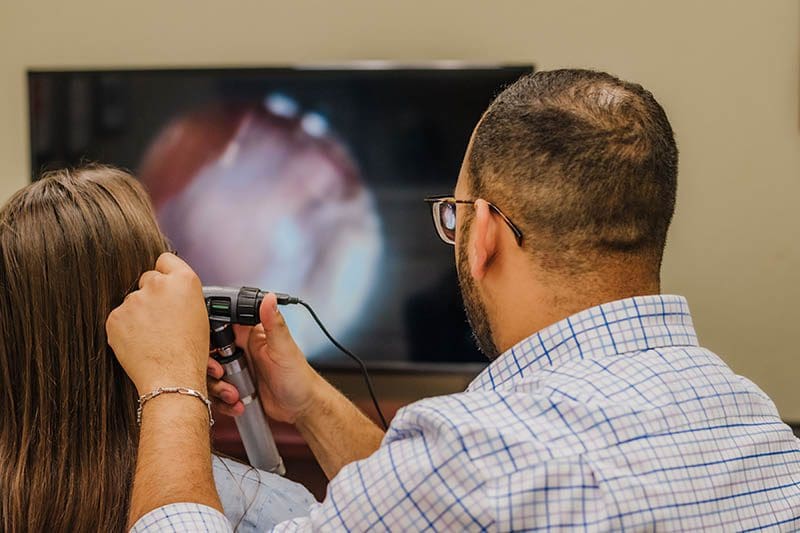Why It’s Difficult to Recognize Your Hearing Loss
Our children grow up without us even realizing.
That’s because as you’re with them every day, you don’t notice the small gradual changes of growth. Yet when you look back at photographs of them from just a few years ago, you’re surprised at just how much they have changed.
Your hearing is the same.
Due to the very slow gradual nature of hearing loss, it becomes practically impossible to notice any measurable difference in your level of hearing day to day, yet if you were able to compare the difference between now and several years ago, you would instantly notice the stark difference.
This is one of the main reasons why it’s often the people around us that notice the decline in hearing before we do. The biggest problem with hearing loss is that an untreated hearing loss continues to worsen and the longer it is left untreated, the worse it gets.
These are the reasons that our hearing care experts at Holland Hearing are so passionate about regular hearing assessments and taking action as soon as you notice the first signs of hearing loss.
Whether it’s simple things like having the television louder than you used to, or you’re struggling to hear conversations in noisy environments, the best decision that you can make is to schedule a hearing test as a precaution at the very least.
To schedule your comprehensive hearing assessment, you can complete the form on this page, or you can call us at (325) 437-4730 .
Schedule a Hearing Assessment
"Holland Hearing is the best in town. They're very personable, they really care"
What Happens at a Hearing Evaluation?
DUMMY ITEM - DO NOT DELETE
Mild Hearing Loss
To be heard, sounds must be between 26 dB and 40 dB (decibels). People with a mild hearing loss may have difficulty hearing soft conversation and young children. They often miss softer consonant sounds, like ch, th, and sh. They may ask people to speak up or repeat themselves.
Moderate Hearing Loss
If you have a moderate hearing loss, sounds must be between 41 dB and 55 dB to be heard. Along with missing consonant sounds, it becomes more difficult to distinguish between various vowel sounds. People with a moderate hearing loss admit that they hear conversations but don’t always understand what is said.
Moderately Severe Hearing Loss
Sounds must be between 56 dB and 70 dB to be heard. Speech is inaudible without the help of hearing aids. Even with hearing aids, speech may be difficult to understand, and increasing amplification doesn’t always improve clarity.
Severe Hearing Loss
Those with this level of hearing loss can only hear sounds from 71 dB to 90 dB or louder. For these individuals, speech is inaudible without hearing aids or cochlear implants.
Profound Hearing Loss
Individuals with a profound hearing loss can only hear sounds in excess of 91 dB. Very loud sounds like airplane engines, traffic, or fire alarms may not be heard by these individuals without the help of a cochlear implant or hearing aids.


What Happens at a Hearing Evaluation?
DUMMY ITEM - DO NOT DELETE
1. A Big Friendly "Hello"
We want to visit with you and your most familiar voice, a family member or close friend, and understand the reasons you’ve decided to have your hearing tested. Have you noticed difficulty understanding colleagues in meetings? Do you ask family or friends for repetition? Are you frustrated because you can’t understand a favorite television show, even with the volume turned up? Has your spouse accused you of not paying attention or having “selective hearing?” Do you have ringing in the ears?













